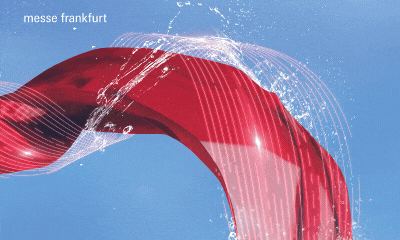 |
ISPA Releases Latest Industry Research on U.S. Spa Industry (États-Unis)
|
Catégorie : Amérique du Nord et Antilles - États-Unis - Économie du secteur
- Chiffres et études
Ceci est un communiqué de presse sélectionné par notre comité éditorial et publié gratuitement le jeudi 14 octobre 2010
As the voice of the global spa industry for 20 years, the International SPA Association continues its reputation for producing the most comprehensive and respected research with the release of the ISPA 2010 U.S. Spa Industry Study.
"This study is extremely valuable for ISPA members, media and investors, and the association is very proud to deliver research of such high quality," said ISPA President Lynne McNees. "We are also encouraged to see that the industry remains viable, despite the economic concerns of the past two years."
Compiled by PricewaterhouseCoopers, key findings from the research cover six categories.
Industry Size and the Impact of the Recession
Spas, like every other industry, were impacted by the worst economic downturn since the 1930s. However, even with the decline, the "big five*" indicators remain at their second-highest level since ISPA's first study in 2000.
Industry Profile
Day spas continue to comprise an overwhelming majority of establishments (79 percent); resort/hotel spas comprise the second largest segment (8.8 percent) with medical spas a close third (8.7 percent).
Facilities
Spas account for 76 million square feet of indoor space.
Services and Products
Spas received an estimated 143 million client visits in 2009. The primary treatments provided by spas are body or skin-care services, massage services, and salon services.
Prices and Composition of Revenue
Four main spa treatment and service categories -- massage and bodywork, skin care, hair and nail -- account for 78 percent of total spa revenue. Retail accounts for 12 percent of spa revenue.
People
The spa industry employed over 330,000 people during the spring of 2010; 89 percent of spas provide a range of benefits to employees.
As a way of managing the effects of the recession, most spas have reengineered their menus. Seventy-five percent have introduced shorter treatments (30 minutes or less) to provide a less expensive option for clients with busy schedules.
The full study is complimentary for members of ISPA and can be purchased online at www.experienceispa.com. Press passes are available for 2010 ISPA Conference and Expo at Gaylord National Resort & Convention Center, November 15-18.
*The "big five" indicators are: revenue, spa visits, locations, employees and square footage. Access detailed information on the "big five" at: http://www.experienceispa.com/articles/index.cfm?action=view&articleID=372&menuID=75
|
|







